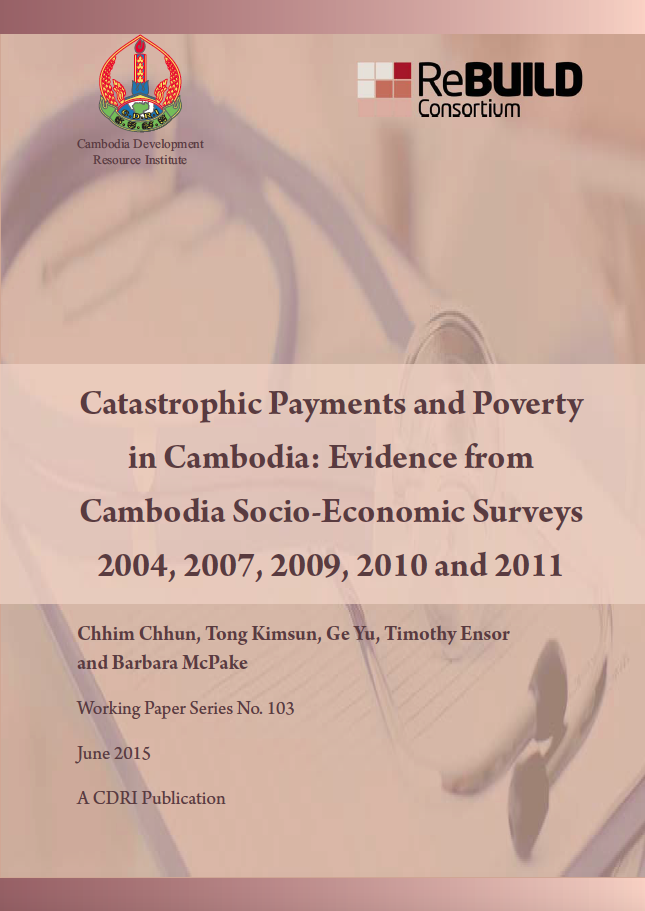
Catastrophic Payments and Poverty in Cambodia: Evidence from Cambodia Socio-Economic Surveys 2004, 2007, 2009, 2010 and 2011
This paper estimates the incidence and intensity of catastrophic health payments and their impoverishment effects and identifies the sources of catastrophic payments by using the nationally representative household survey, the Cambodia Socio-Economic Survey conducted in 2004, 2007, 2009, 2010 and 2011 by the National Institute of Statistics. We fin...
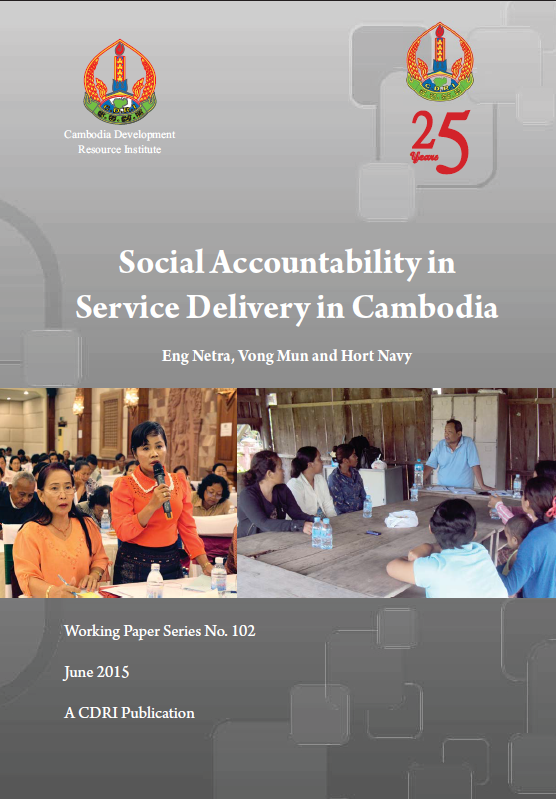
Social Accountability in Service Delivery in Cambodia
Social accountability is becoming integral to the government of Cambodia’s reform agenda as a new approach to promote and empower citizens’ collective voice to demand accountability from state officials for improved public services. International donors and non-government organisations have initiated and implemented various tools of social accounta...
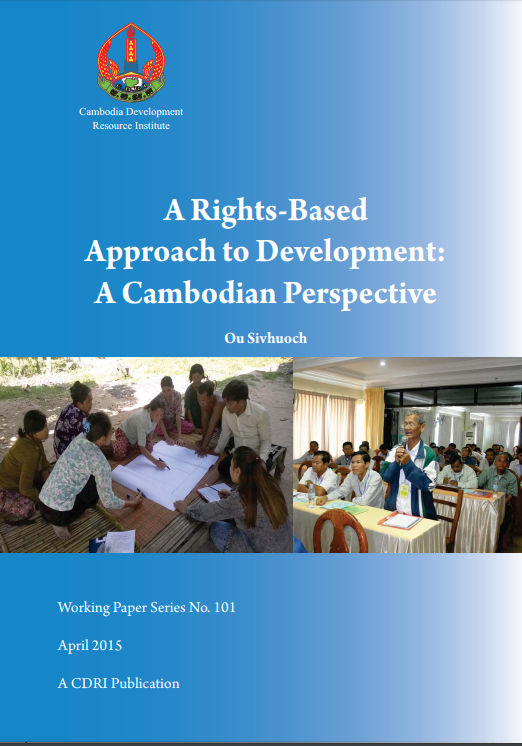
A Rights-Based Approach to Development: A Cambodian Perspective
The rights-based approach (RBA) to development emerged as a new and relatively authoritative paradigm, starting from the late 1990s. At its core is the argument that human rights and development converge and, unless the socio-economic rights of the poor are attained, poverty cannot be alleviated. Its approach is to shift NGOs’ strategy from providi...
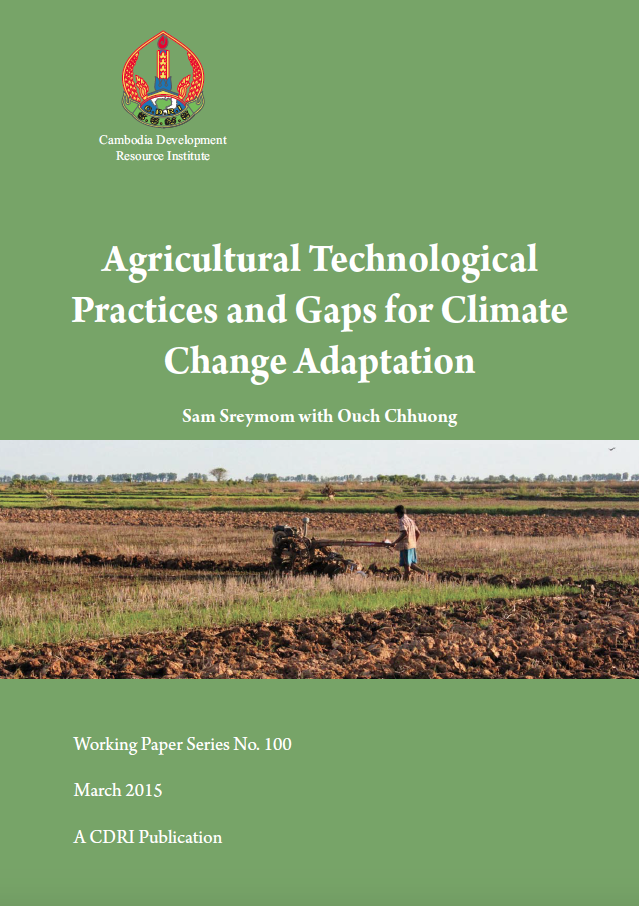
Agricultural Technological Practices and Gaps for Climate Change Adaptation
Agriculture plays an important role in sustaining rural livelihoods. Eighty-three percent of rural people are engaged in agriculture (NIS and MAFF 2014). An emerging problem facing agriculture is climate change. The anticipated impacts of climate change and variability on agriculture include changes in rainfall patterns, higher temperatures, in...
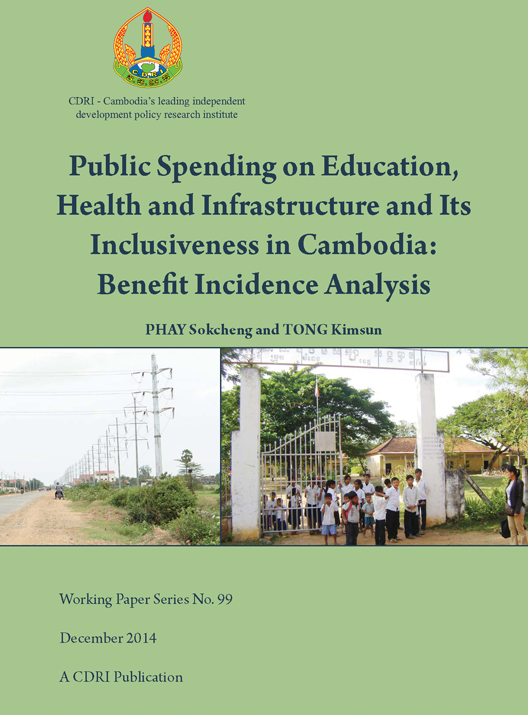
Public Spending on Education, Health and Infrastructure and Its Inclusiveness in Cambodia: Benefit Incidence Analysis
This paper examines public spending on education, health and infrastructure in Cambodia. Using benefit incidence analysis (BIA), marginal benefit incidence analysis (MBIA) and the nationally representative household survey data from the Cambodia Socio-Economic Survey (CSES) in 2004, 2009 and 2011, the paper examines whether governmen...
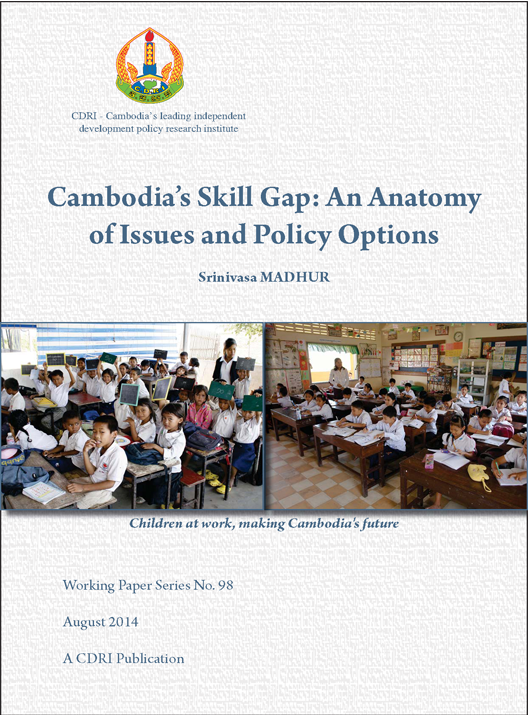
Cambodia’s Skill Gap: An Anatomy of Issues and Policy Options
There is growing consensus that an emerging skill gap could impose human costs and constraints on Cambodia’s economic growth and development. The country is facing a shortage of skilled human resources even for low-to-medium skill intensive industries. There is a widening gap between the skills that industries and businesses need and what the e...
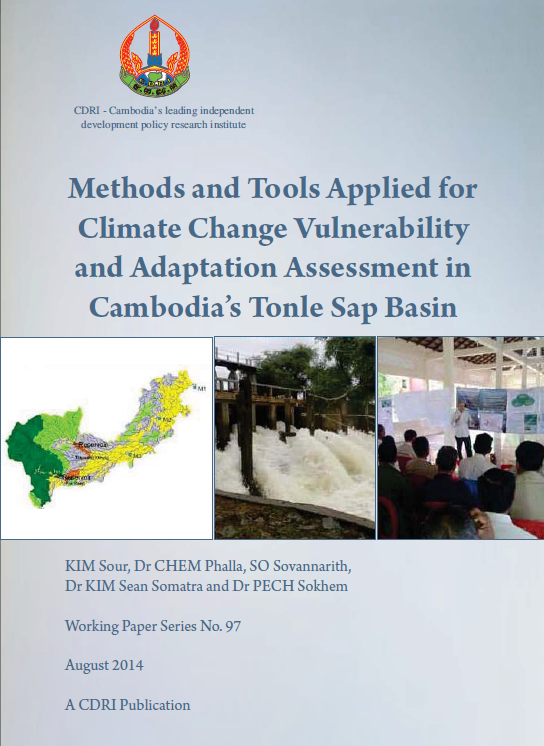
Methods and Tools Applied for Climate Change Vulnerability and Adaptation Assessment in Cambodia’s Tonle Sap Basin
Cambodia is highly susceptible to natural disasters due to the frequency and intensity of extreme climatic events, primarily floods, droughts and windstorms, but also in particular to increased climate variability.These disasters and climate-related hazardshave exacted huge socioeconomic costs on the country’s economy and people’s liveli...
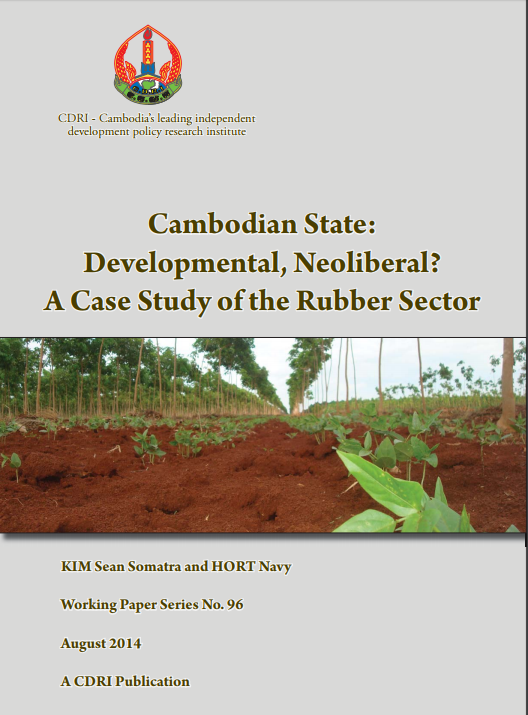
Cambodian State: Developmental, Neoliberal? A Case Study of the Rubber Sector
The majority of studies of governance reform in Cambodia look at the impact on democratic consolidation; not enough attention is given to development. This paper aims to understand how reforms have impacted the state’s ability to support economic growth, using the framework of developmental state with a focus on four characteristics. Based on a...
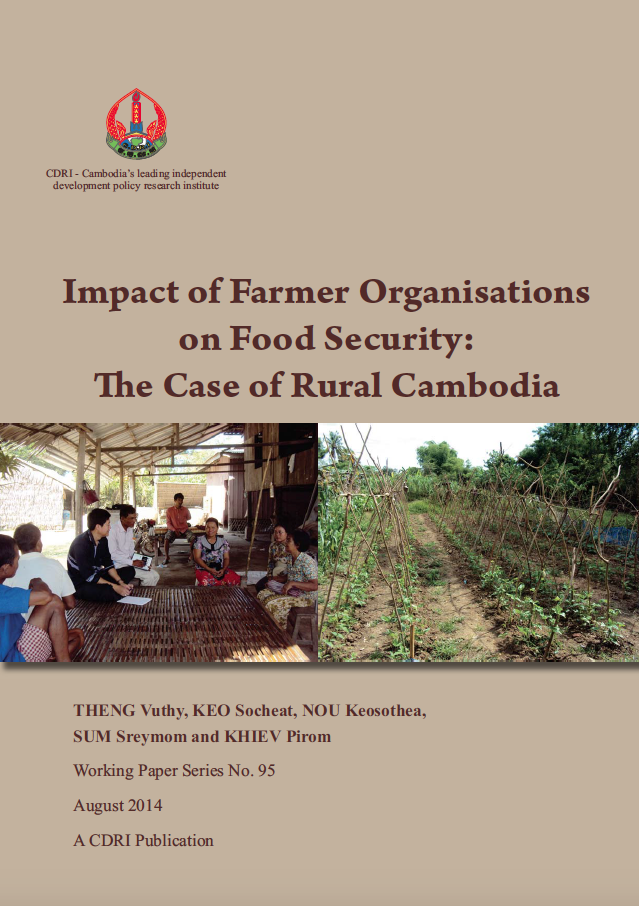
Impact of Farmer Organisations on Food Security: The Case of Rural Cambodia
This study assesses the impact of participation in farmer organisations (FOs) on the food security of rural households in Cambodia. The study was started in November 2010 and completed in June 2012. The study set out to: (1) examine the roles, operations and challenges of FOs in improving household food security; (2) analyse the household characte...

The Enduring Gap: Decentralisation Reform and Youth Participation in Local Rural Governance
To understand the contribution of the decentralisation reform to youth participation in local rural governance, this paper reviews empirically how youth have utilised the participatory opportunities enabled by the decentralisation reform based on three themes: civic, political and electoral. The findings suggest that despite decentra...
